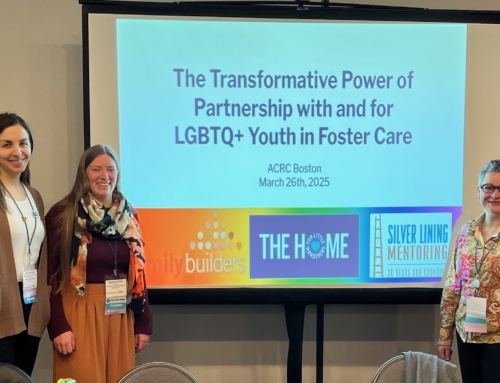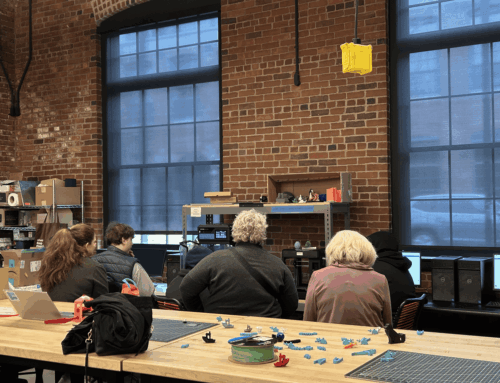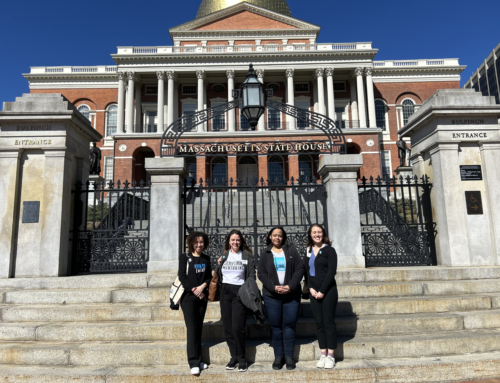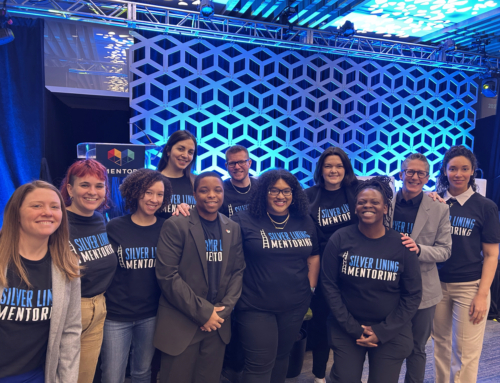Every mentoring match includes a unique journey between two individuals built on the principles of connection, reciprocity and care. Silver Lining Mentoring matches last an average of 55 months, more than six times the national average. No matter the length of the relationship, there are special moments shared and memories built that last a lifetime.
We know that when Silver Lining Mentoring matches reach specific criteria that shows that the strength of their relationship goes beyond the need for formal one-to-one program team support, the option for graduation is presented to both the mentee and mentor. There are conversations about what graduation looks like, which is different for each match, and how communication and quality time can be maintained moving forward.
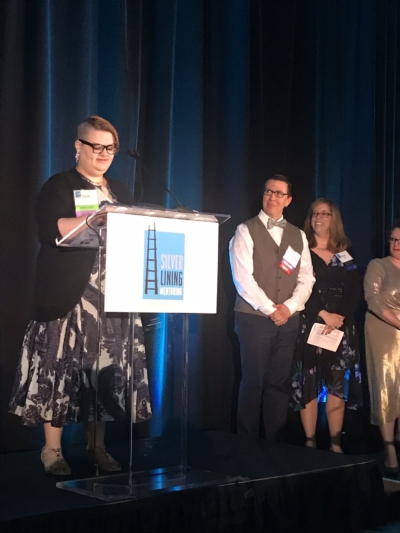
This isn’t an ending, but a transitional opportunity for a match to flourish with the trust that what they’ve built will sustain them in whatever way they choose to stay connected moving forward. Graduation helps provide matches with agency about how their relationship develops outside of the structure of the program, and allows the team to focus on developing and supporting emerging relationships. This ensures that all of them have customized support specific to their journey in the match lifecycle.
We recently spoke to one of our recently-graduated community-based volunteer mentors Mel to understand what motivated them to become a mentor and their reflections post-match transition. Mel also serves as Director, NMRC Technical Assistance for MENTOR National.
Silver Lining Mentoring: Why did you want to become a volunteer mentor? What would you want to share with someone who’s considering becoming a mentor?
Mel: I wanted to become a mentor because I think all young people deserve to have a consistent presence in their lives who shows up for them, no questions asked. Because I work in the mentoring field, I understand that strong relationships can make all the difference in keeping a young person connected to their community. I also know that representation matters and the need for current volunteer mentors with a variety of backgrounds is always needed.
Silver Lining Mentoring: Describe your mentoring match experience in three words. What was your favorite memory you shared with your (mentee) Jesse?
Mel: Connecting, encouraging and surprising. I didn’t expect that by becoming a mentor I would learn so much about myself too! Mentoring relationships are two-way and meant to be mutually beneficial. Through the match experience, both people learn, grow and flourish because they have each other and are bringing their own perspectives and lived experiences.
Relationships and connections matter so much in building memories, because trust is essential to that foundation of quality time. There’s one memory that comes to mind that shows our bond over shared interests. Over five and a half years ago, Jesse had asked me to accompany them to a meeting that they knew was going to be difficult for them. We made a plan to go do something fun and restorative after. Jesse and I both have volunteered at animal shelters and she wanted to visit the one that she had volunteered at a few years before. Jesse was so excited to see a cat that had been there when she had volunteered, that she immediately sat down next to and they enjoyed each other’s company.
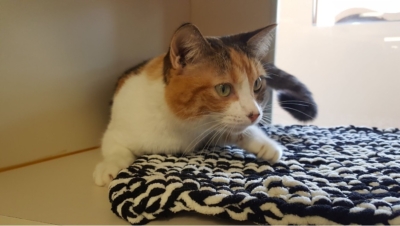
While I was standing watching them a small adult calico kitty had poked her paw out and kept incessantly tapping me on the arm. Having such a warm feeling in my heart over how happy Jesse was engaging with another kitty, I in turn started to play with this adorable and fun loving calico kitty. She was purring, making “biscuits” on my arm and playing with the little toys I was throwing, Jesse quickly came over and we both were petting her and this little kitty just ate it all up. Because she had literally already stolen a smidgen of my heart I asked the shelter if there were any open adoption applications on her and she didn’t have any.
I then asked Jesse what she thought and I cannot begin to tell you how excited Jesse was when she found out that I was going to adopt her, and she was so excited that it was from a shelter she loved so much. I ended up adopting the little kitty that day, and calling her Smidge because of that first interaction. Over the coming years and still to this day I can’t thank Jesse enough for bringing me to a place that was so close to her heart, because otherwise I wouldn’t have found Smidge, one of the most wonderful, loving and sweet cats. Every time I’m with Smidge I’m reminded of the friendship that Jesse and I share and this memory that deepened our bond.
Silver Lining Mentoring: We know that when matches graduate, sometimes a mentor will seek to be re-matched. Is that something you’re interested in?
Mel: After being matched with my mentee for almost eight years, I know that the length of the match can make an impact. For youth in foster care, they are often navigating a lot of change and the unexpected. Being someone who is there throughout any transition is a role that all volunteer mentors have. Even though we’ve graduated, we are forever connected through our match experience. 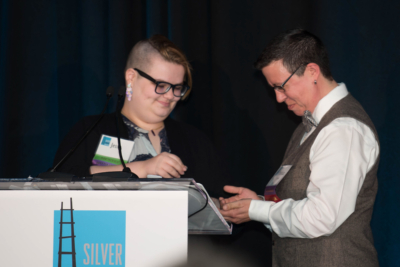
Beyond that, I know that there are young people who are waiting to be matched and because I’ve completed the training and necessary reference checks, that can help in reducing the wait time for a young person. I truly believe in the power of mentoring, not just for the young person but for the mentor. Being able to continue to engage with Silver Lining Mentoring and experience another match journey is something I’m incredibly excited about.
Silver Lining Mentoring: What is one thing you’d want someone who is considering becoming a volunteer mentor to know?
Mel: Every mentoring relationship is different. Someone else’s story about being a mentor may be completely opposite than your own for a variety of reasons. Remember to stay centered on the young person’s needs throughout, and know that your commitment of time and energy matters.
Silver Lining Mentoring: Thank you, Mel, for your deep commitment to young people and relational health. We appreciate you and look forward to you being a part of the SLM community for many years to come.
Interested in learning more about mentoring a young person in foster care? Check out the Become a Mentor page and explore options for attending an upcoming volunteer info session.
**These opinions presented are personal and in no way reflect the thoughts or opinions of MENTOR National or MENTOR Affiliate Network, The Office of Juvenile Justice and Delinquency Prevention or The National Mentoring Resource Center.
